In Georgia, an EU revolution is underway: 'We will not face Russia alone'
Terona Macharashvili takes part every day in the massive pro-EU demonstrations in Georgia, which are compared to the deadly Maidan uprising in Ukraine 10 years ago.
A so-called law against foreign influence has brought angry protesters onto the streets of Georgia's capital Tbilisi. (Photo: © Guram Muradov, Civil.ge)
OFCaroline Sofie Gede
I Georgien er en EU-revolution i gang: '''Vi vil ikke sta overfor Rusland alene''' | EU | DR
This is not the first time Terona Macharashvili has seen herself driven out of her home by the Russians.
During the 1991 war in Abkhazia, her family's house was burned down and they were forced to flee, she says.
"Now it feels like the Russians are about to throw me out of my home again," Terona Macharashvili said, pointing to a law against foreign influence that was first read last week in Georgia's parliament.
The law means that all organizations that receive more than 20 percent of their funding from abroad must be registered as being under "foreign influence."
The demonstrations have now entered their second week in Georgia's capital, Tbilisi. (Photo: © Guram Muradov, Civil.ge)
The ruling party believes that the law can create more transparency in society. But far from everyone agrees on this. (Photo: © Mariam Nikuradze, OC Media)
'We are going to wake up in Russia'
The law is being called the "Russian law" by critics because a similar law was introduced in Russia in 2012. It has made it significantly harder to run a free media and exercise activism in the country.
Terona Macharashvili fears that the same will happen in Georgia. She herself works for the organization Caucasusu Open Space, which stands to be affected by the new law.
- We will not register as someone who is under "foreign influence". Therefore, we may be forced to shut down, says Terona Macharashvili.
The Georgian government defends the law on the grounds that it will create transparency in funding various organizations and points out that the United States also has similar law.
Terona Macharashvili is a lawyer who helped start a pro-EU organisation that risks being shut down if the government's bill is passed. (Photo: © PRIVATE PHOTO)
But Terona Macharashvili is not much for that explanation.
"They won't stop at the organizations. The law will affect every citizen. If we live in a corrupt state again, the personal, political and social rights of Georgian citizens will no longer be protected, she says.
"Then we will wake up in Russia and will have lost our country.
Read also: EU countries give green light to accession negotiations with Ukraine and Moldova
Georgia was granted EU candidate status in December. And now critics of the law fear it will undermine Georgia's efforts to join the EU. The EU has also already warned Georgia against introducing the law, which the European Parliament calls "incompatible with EU values and democratic principles."
Georgia's Maidan Uprising
The protests in Georgia have ended in several violent clashes between protesters and police - prompting Amnesty International, among others, to warn against the "excessive force of the police against the protesters."
And now they are being compared to the deadly Maidan uprising in Ukraine 10 years ago.
- There are very similarities, says director of the Foreign Policy Society Charlotte Flindt Pedersen to P1 Morgen:
"Most see it as a step into a Russian sphere of influence and away from the EU. And it was the same thing that started the Ukrainian Maidan uprising.
The unrest began when then-President Yanukovych chose not to sign an association agreement with the EU and ended with the deaths of over 100 pro-EU protesters.
The Ukrainian government eventually resigned, and a conflict broke out between Russia and Ukraine when Russia annexed the Ukrainian Crimean peninsula.
Back then, it was especially the violence against the students that caused the riots to escalate, says Charlotte Flindt Pedersen:
"This prompted ordinary Ukrainians to also support the demonstrations. It will be interesting to see whether the violence will have the same consequences in Georgia.
"I fear the worst. This is a showdown, and the government knows that it will not be easy, says Charlotte Flindt Pedersen.
Fearing the neighbor to the north
Charlotte Flindt Pedersen points out that Georgia is in a particularly vulnerable situation both geographically - due to access to the Black Sea - and politically.
And there have also been frictions and conflicts in relations between Georgia and Russia on several occasions before. In 2008, the two fought each other over a territory in South Ossetia.
According to Terona Macharashvili, it is also the fear of a Russian invasion that fills the protesters.
Read also: Georgia in spaghetti between East and West: Trucks queuing up to bring goods to Russia
We want to be members of the European Union because our values of human rights, democracy and governance are in line.
EU membership is extra important to Terona Macharashvili right now.
"Being part of the European Union will give us tools to defend our freedom. If we are outside the European Union, we will face Russia alone," Macharashvili said.
Results 1 to 10 of 10
Thread: Deja Vu : Georgia
Threaded View
-
29-04-2024, 11:44 PM #1
Deja Vu : Georgia
Thread Information
Users Browsing this Thread
There are currently 1 users browsing this thread. (0 members and 1 guests)






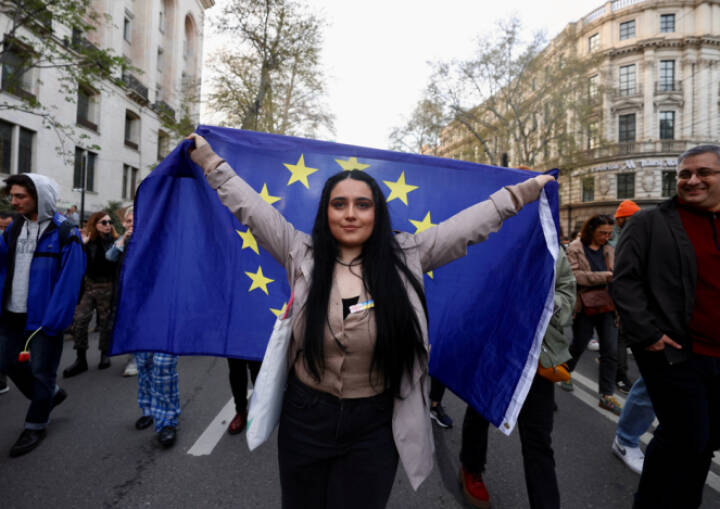
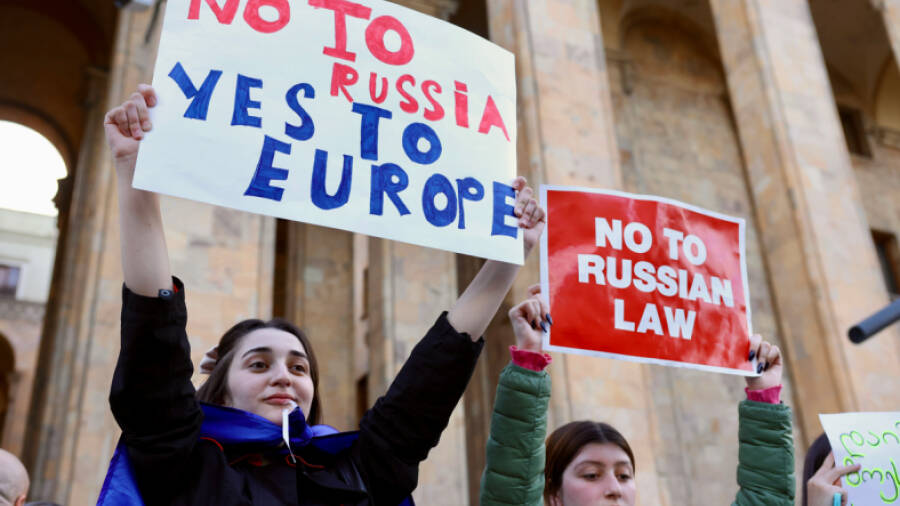
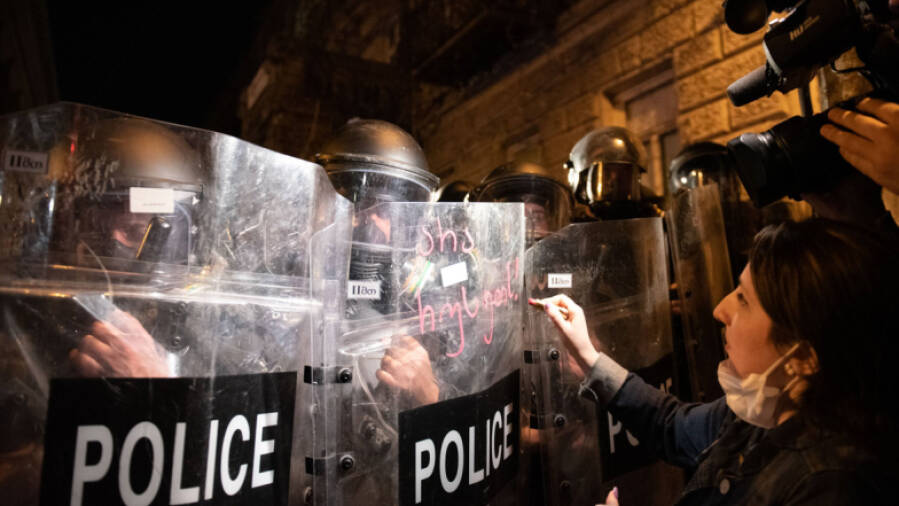
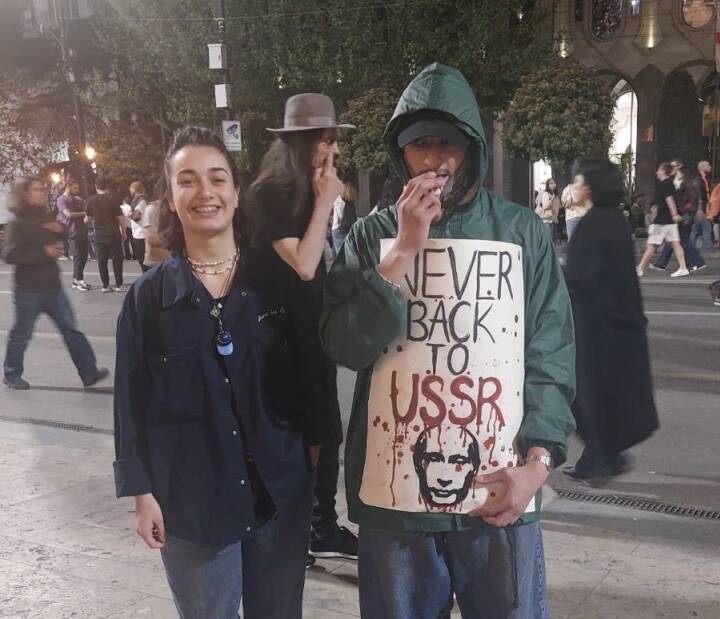
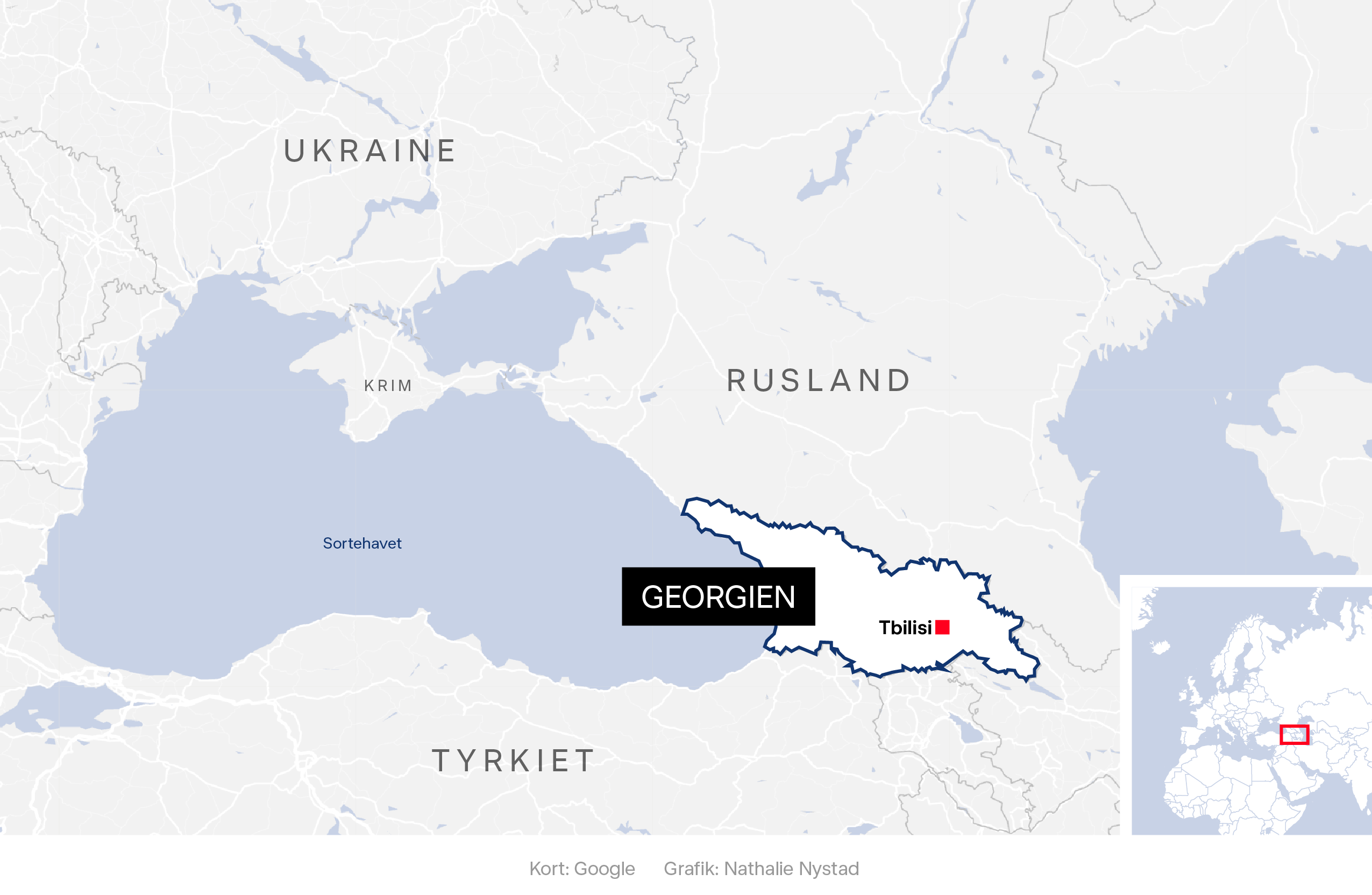

 Reply With Quote
Reply With Quote